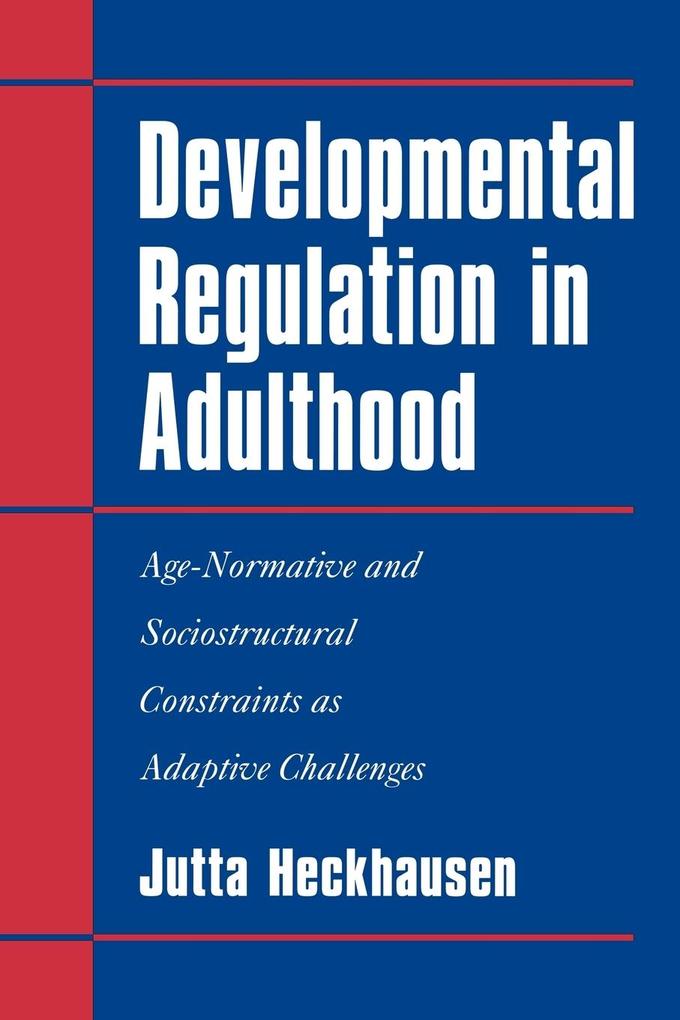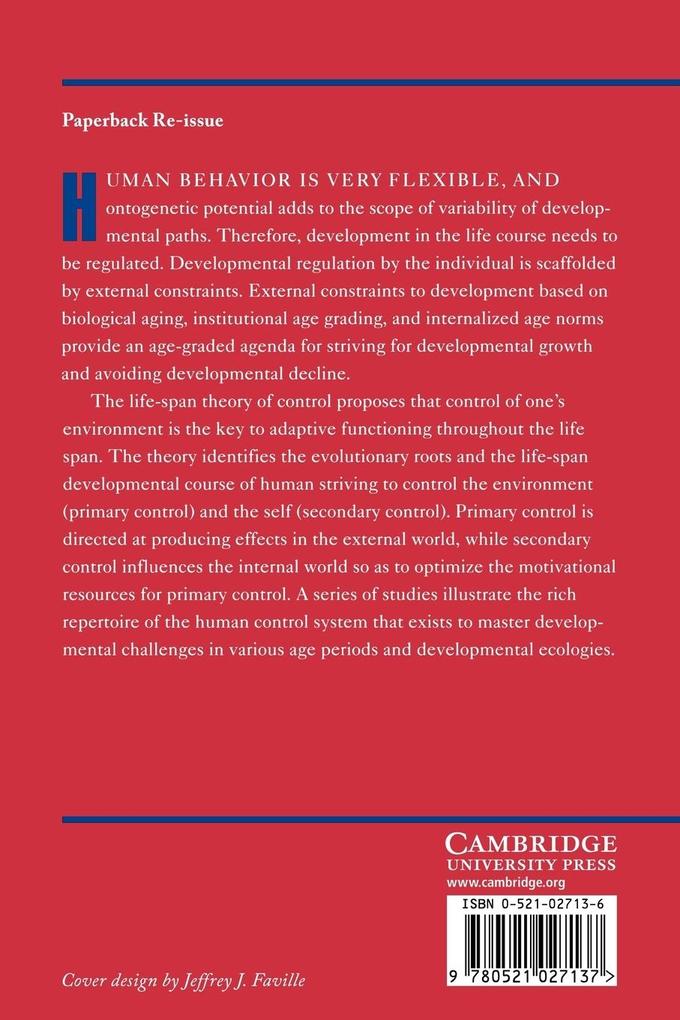Human behavior is very flexible, capable of influencing a huge variety of developmental paths. Therefore, development in the life course needs to be regulated. The life-span theory of control proposes that control of one's environment is the key to adaptive functioning throughout the life span. This theory identifies the evolutionary roots and the life-span developmental course of human striving to control the environment (primary control) and the self (secondary control). Primary control is directed at producing effects in the external world, while secondary control influences the internal world so as to optimize the motivational resources for primary control. A series of studies illustrates the rich repertoire of the human control system to master developmental challenges in various age periods and developmental ecologies. Researchers in social and developmental psychology, sociology, and anthropology will welcome this new addition to the literature.
Inhaltsverzeichnis
Acknowledgments; List of tables and figures; Introduction; 1. Selectivity and failure compensation as fundamental requirements of human behavior and development; 2. The life course as a context of action; 3. Primary and secondary control across the life span; 4. A model of developmental regulation across the life span; 5. Developmental goals as organizers of developmental regulation; 6. Developmental regulation in different life-course ecologies; 7. Social comparisons as prototypical strategies in developmental regulation; 8. Conclusions and prospects for future research; References; Indexes.











